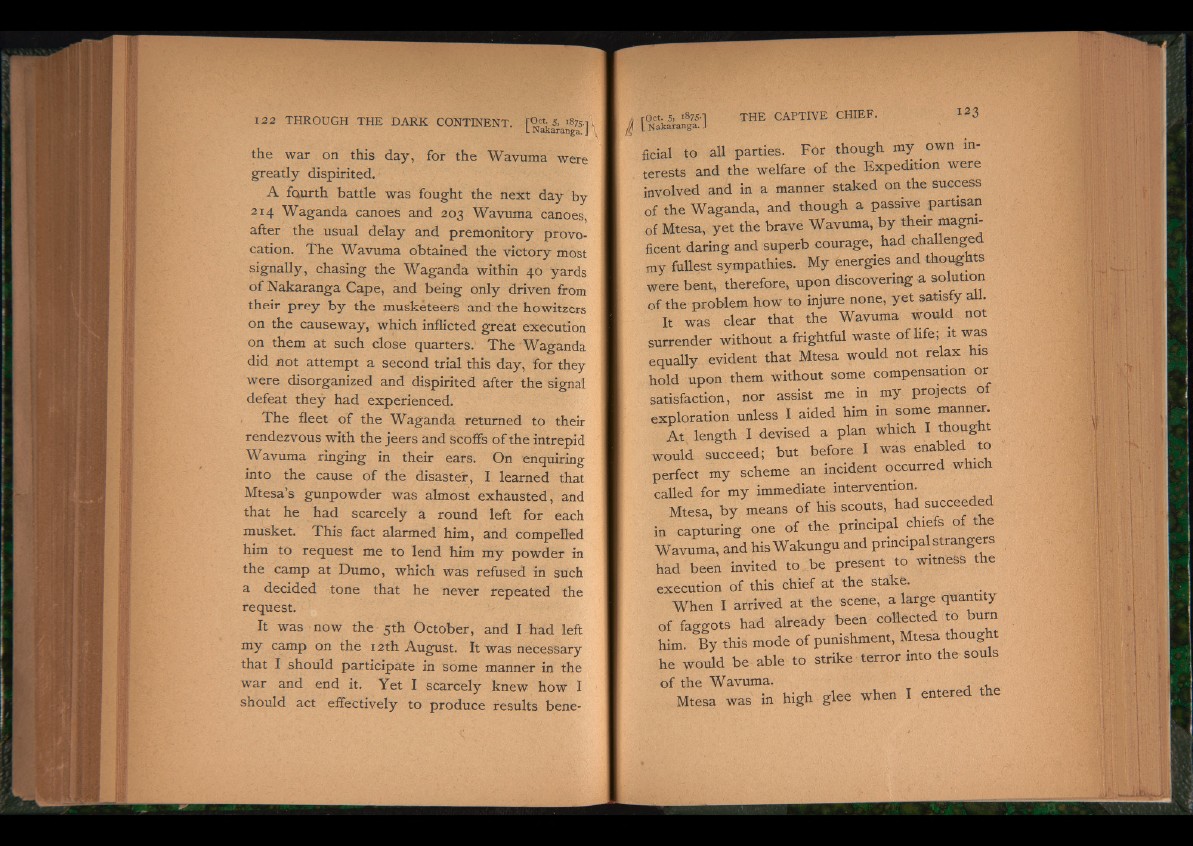
the war on this day, for the Wavuma were
greatly dispirited.;
A fourth battle was fought the next day by
214 Waganda canoes and 203 Wavuma canoes,
after the usual delay and premonitory provocation.
T h e Wavuma obtained the victory most
signally, chasing the Waganda within 40 yards
o f Nakaranga Cape, and being only driven from
their p re y b y the musketeers and the howitzers
on the causeway, which inflicted great execution
on them at such close quarters. T he Waganda
did not attempt a second trial this day, for they
were disorganized and dispirited after the signal
defeat th e y had experienced.
T he fleet o f the Waganda returned to their
rendezvous with the jeers and scoffs o f the intrepid
Wavuma ringing in their ears. On enquiring
into the cause o f the disaster, I learned that
Mtesa’s gunpowder was almost exhausted, and
that he had scarcely a round left for each
musket. This fact alarmed him, and compelled
him to request me to lend him my powder in
the camp at Dumo, which was refused in such
a decided tone that he never repeated the
request.
It was now the 5th October, and I had left
my camp on the 12th August. It was necessary
that I should participate in some manner in the
war and end it. Y e t I scarcely knew how I
should act effectively to produce results beneficial
to all parties. For though my own interests
and the welfare o f the Expedition were
involved and in a manner staked on the success
of the Waganda, and though a passive partisan
of Mtesa, y e t the brave Wavuma, b y their magnificent
daring and superb courage, had challenged
my fullest sympathies. My energies and thoughts
were bent, therefore, u p o n discovering a solution
o f the problem how to injure none, y e t satisfy all.
It was clear that the Wavuma would not
surrender without a frightful waste o f life; it was
equally evident that Mtesa would not relax his
hold upon them without some compensation or
satisfaction, nor assist me in my projects o
exploration unless I aided him in some manner.
A t length I devised a plan which I thought
would succeed; but before I was enabled to
perfect my scheme an incident occurred which
called for my immediate intervention.
Mtesa, b y means o f his scouts, had succeeded
in capturing one o f the principal chiefs o f the
Wavuma, and his Wakungu and principal strangers
had been invited to bo present to witiiess the
execution o f this chief at the stake.
When I arrived at the scene, a large quantity
o f faggots had already been collected to burn
him. B y this mode of punishment, Mtesa thought
he would be able to strike terror into the souls
o f the Wavuma.
Mtesa was in high gle e when I entered the